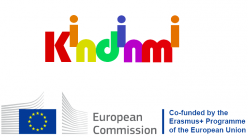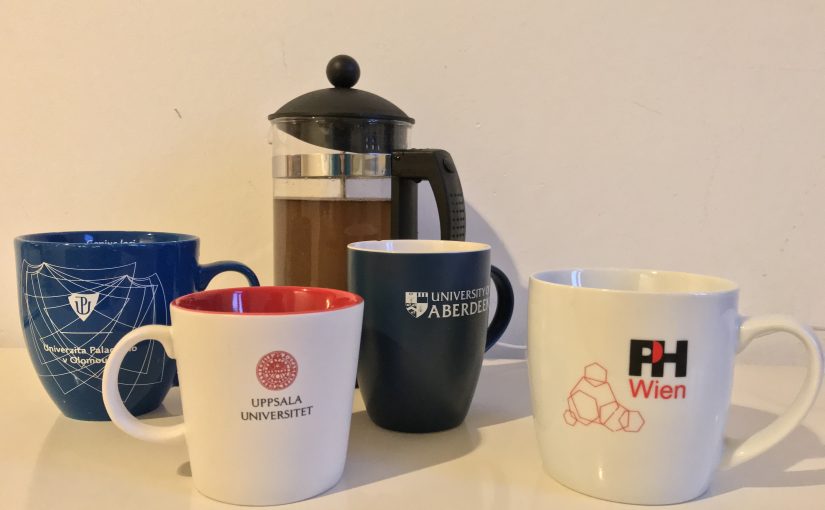The mass closure of universities in the EU had begun on 12th of March 2020, as governments hope lockdown and bans on public gatherings will slow down the spread of COVID-19. Due to COVID-19 all KINDINMI partners were forced to work from home. In the last weeks of the project we were busy writing the final report for KINDINMI.
It is through developing educational tools and professional development courses, that the project wished helping changing attitudes and facilitate inclusion.
As the beneficiary target groups were recently arrived families with infants and children aged 6 months-7 years it seemed important to us that even those groups were included and involved in the materials and activities developed through the project.
One important and in our eyes original goal was also to facilitate cooperation between different social actors such as municipalities, stakeholders, social workers, NGO, libraries, families of children from the host country: in other words, the global objective of the project was to promote preschool as a social and cultural meeting place.
In order to reach our goals, we had to map and compare practices in different contexts and, although the situation may vary from one country to the other, develop common tools, materials that may even be adapted and used at a European or international level. The different mappings developed through the project have therefore resulted in courses aimed for existing or future preschool personal and educational tools for practitioners, children and families, published on our website and which can be adapted and widely spread.
During the project, preschool/school teachers, mother tongue teachers, headmasters, university staff and students, stakeholders , NGOs, parents, children were involved at different levels: surveys, questionnaires and formal or informal interviews were conducted with all categories of participants. Some participated in activities and many have now used our pedagogic kit!
We drew innovation rather far and teachers and preschool children participated for instance in our final event through different activities, where they were the main actors, and an exhibition of envelope houses made by children and collected by preschools from all partners countries.
During the KINDINMI project, the following activities have been conducted:
– The project teams started by mapping (reading, surveys, interviews, comparisons) the situation in each context, which has resulted in presentations (updated until February 2020), and a bibliography/sitography
– We sat up a platform, updated at the and of the project, on which our materials are available, and a blog which was active during the whole project and in the end of February 2020 had been visited over 11500 times.
– Courses have been developed and performed. Curricula are now available in English, German and Swedish. Those curricula are published on the website and are easily adaptable to different contexts and target groups.
– Presentations were held at seminars/conferences, workshops, in the partner countries but also elsewhere in Europe, Tunisia and Japan.
– Articles were written out of our research and observations.
– We have produced podcasts on different issues related to the project and a webinar about picture books and inclusion, all available online.
– All above cited activities have resulted in the project’s most important product, our pedagogic material, the “Heartspace pedagogic kit”: this multimodal material is aimed at preschool staff in initial and in-service education, teachers of mother tongue or other relevant persons and there is in addition a sharing book aimed to travel between preschool, parents, children.
To sum up our results, and the impact of the project, three main target groups, benefited from KINDINMI:
– preschool staff, who through the pedagogic kit, which intentionally is an interactive and reflexive material, acquire new knowledge and competences about inclusion, multicultural issues. Preschool teachers changed attitude toward multicultural families and children and implemented new multimodal, methods into their daily work. The pedagogic material even had influence on physical environment’s disposition and use in preschool. Preschools can now even share good practices through our website. Open preschools
– guardians, who benefit of the staff’s new knowledge, and also can use the sharing book
– kindergarten children, who benefit from their teachers‘ and parents‘ awareness, and can use the sharing book.
Other groups, such as national organizations and stake holders, can benefit from our products, who can be found on our sustainable platform and have been presented in many different contexts and internationally.

